Mental Habits That Will Make You More Resilient
Sep 27, 2023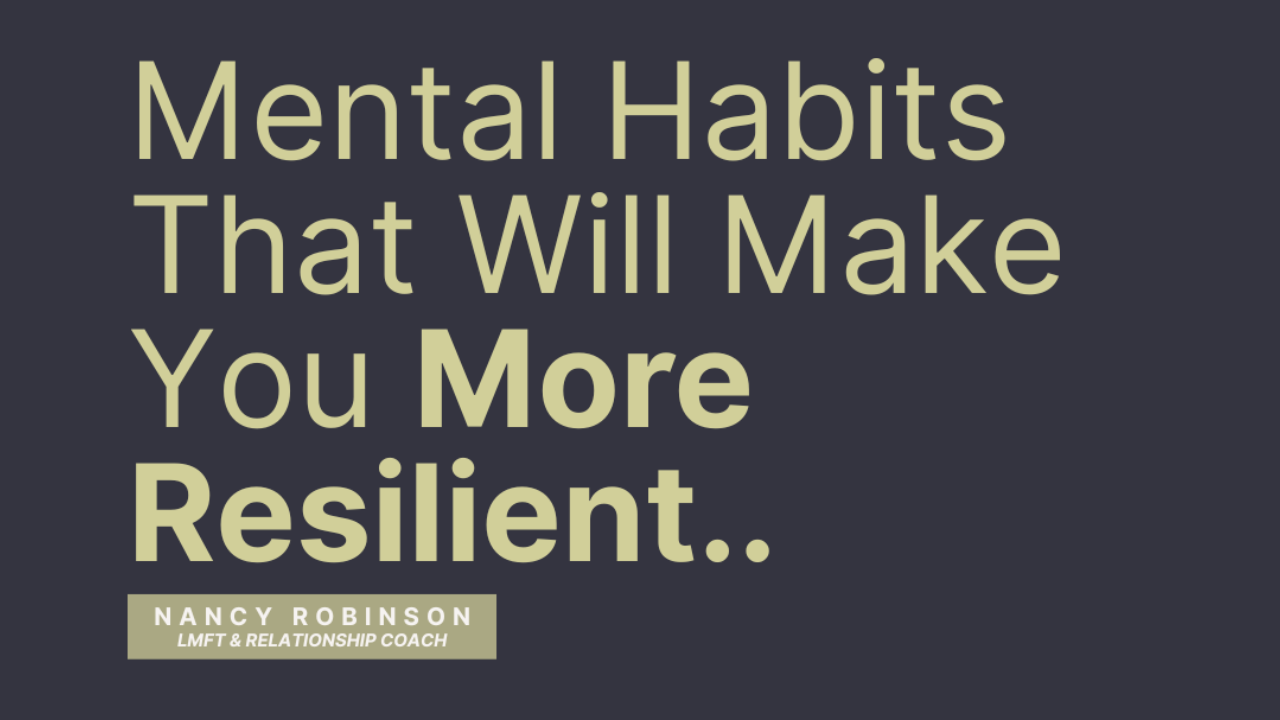
Hey Friends,
Resilience is a crucial aspect of our mental well-being, as it enables us to cope with and adapt to life's challenges. Cultivating resilience can improve our overall mental health and help us navigate difficult situations with greater ease.
Let's explore four mental habits that can bolster our resilience and help us grow stronger. 💪
1. Focus on what you can control. 🎯 Life presents us with countless events and situations that are beyond our control. It is essential to recognize what aspects of a situation you can influence and take action accordingly. By directing your energy towards these areas, you can maintain a sense of agency and reduce feelings of helplessness. This mindset will allow you to make the most of any situation, ultimately enhancing your resilience.
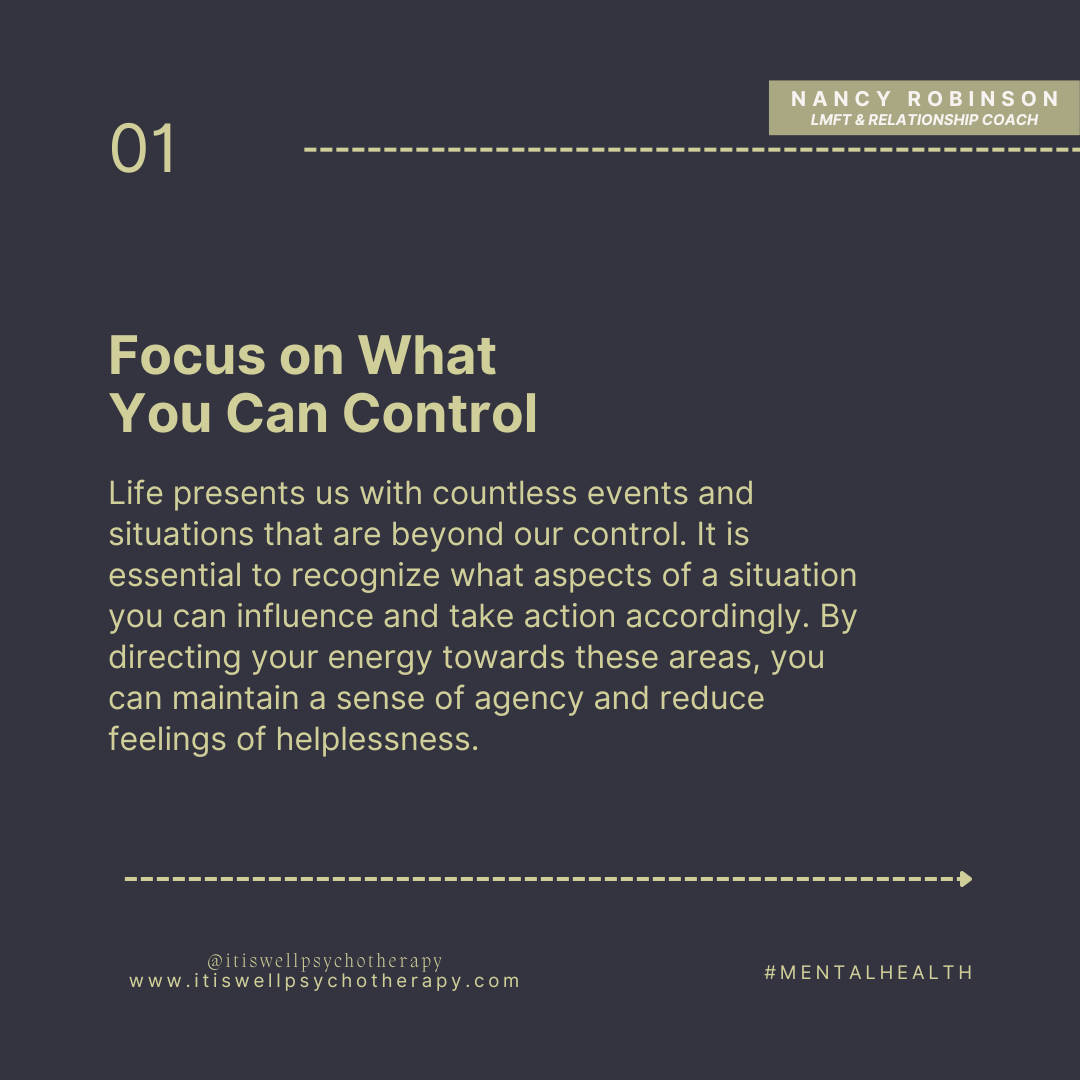
2. Be okay with being uncomfortable. 😣 Growth and change often involve a certain level of discomfort. Embracing this reality and becoming comfortable with feeling uncomfortable can be a significant step toward resilience. By accepting the inherent uncertainty in life and understanding that it is normal to feel uneasy during transitions, you can develop a more flexible and adaptable mindset.
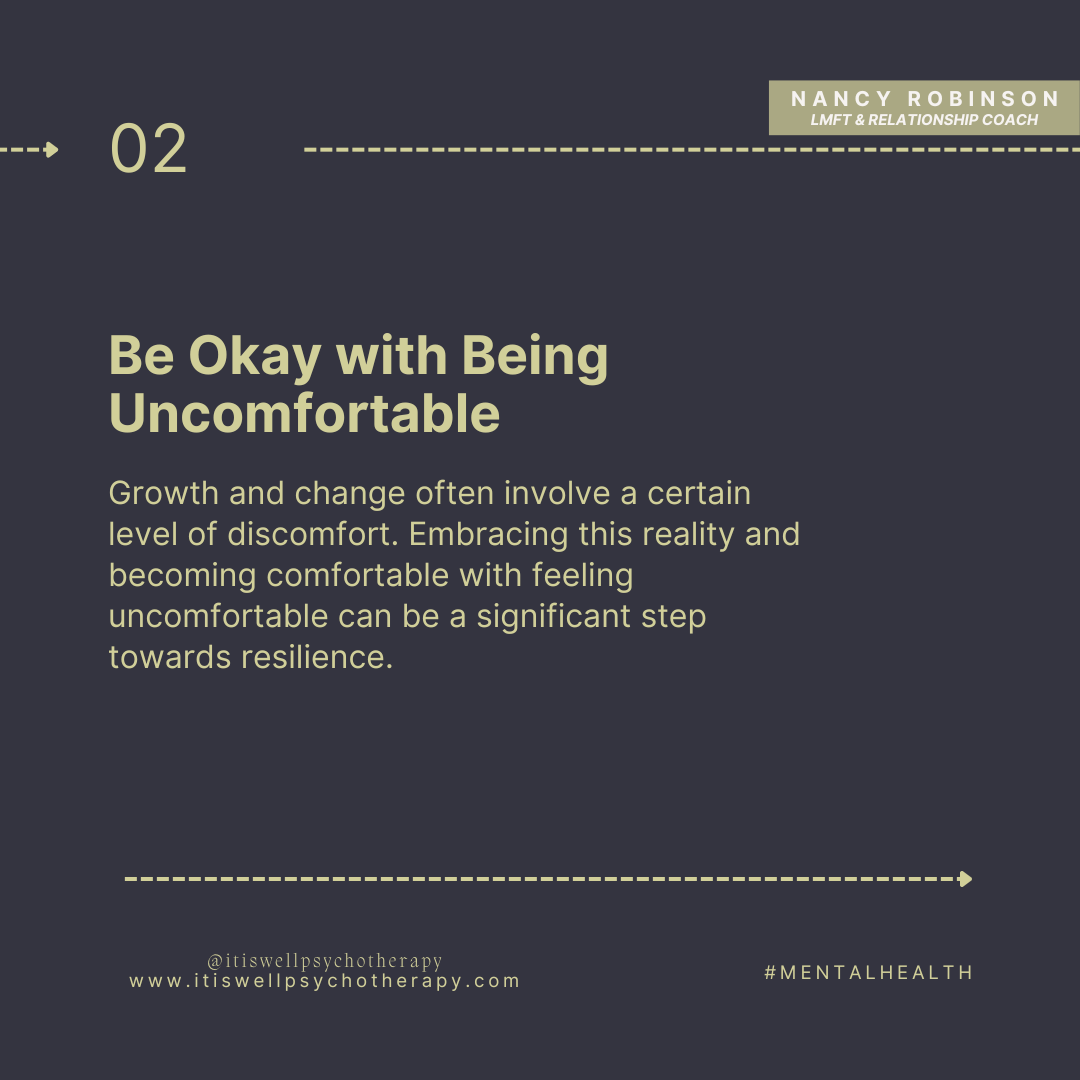
3. Challenge automatic beliefs and thoughts. 🤔 Our thought patterns and beliefs can sometimes hold us back and keep us from realizing our full potential. To build resilience, it is important to examine these automatic thoughts and beliefs critically. Ask yourself: "Is this thought based on facts or assumptions? Is it helpful or harmful?" By challenging and reframing negative thoughts, you can develop a more balanced and realistic perspective, enhancing your overall resilience.
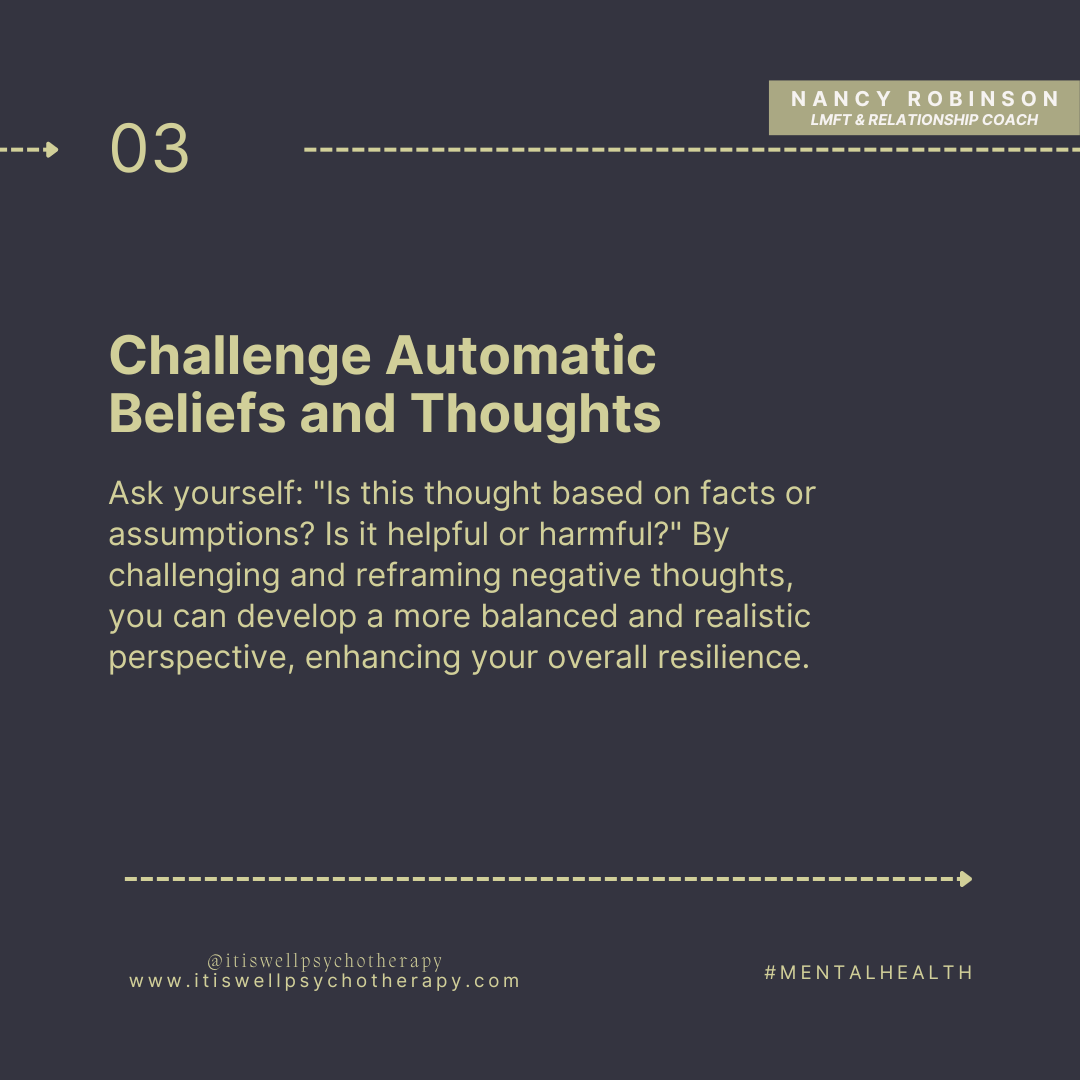
4. Do the opposite of what your limiting beliefs are telling you to do. 🔄 Limiting beliefs can significantly hinder our growth and progress. When you identify a limiting belief, take a step back and consider what action you would take if the belief were not holding you back. Then, strive to do the opposite of what the belief is telling you to avoid. By pushing through these self-imposed barriers, you can break free from their constraints and foster greater resilience.
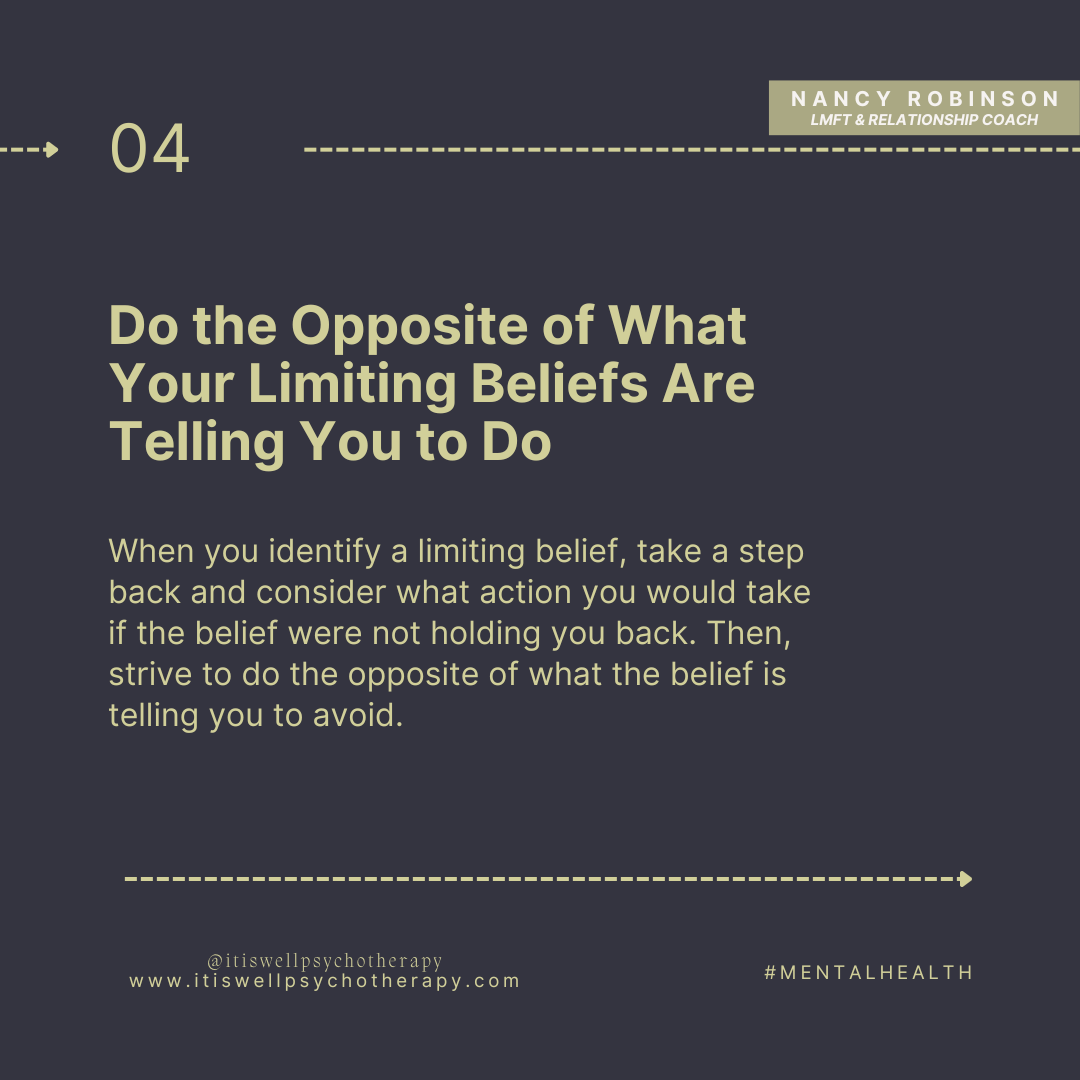
Resilience is an important trait and skill for individuals to develop for several reasons:
-
Adaptation to Change: Resilience enables individuals to adapt to and bounce back from adversity, change, and unexpected events. In a rapidly changing world, the ability to adjust and thrive in different circumstances is crucial.
-
Mental Health: Resilience is closely linked to mental health and well-being. Resilient people tend to experience lower levels of stress, anxiety, and depression. They are better equipped to cope with life's challenges, reducing the risk of mental health issues.
-
Emotional Well-being: Resilience helps individuals manage their emotions effectively. It allows them to process and recover from setbacks, losses, and disappointments without getting overwhelmed by negative feelings.
-
Positive Relationships: Resilient individuals are often better at maintaining positive relationships. They can handle conflicts and setbacks in relationships with greater ease, which contributes to healthier and more lasting connections with others.
-
Achieving Goals: Resilience is essential for achieving long-term goals. It helps individuals stay focused, motivated, and persistent, even when faced with obstacles or setbacks along the way.
-
Enhanced Problem-Solving: Resilient people tend to approach problems and challenges with a more optimistic and solution-focused mindset. This can lead to more effective problem-solving and decision-making.
-
Improved Physical Health: Resilience is associated with better physical health outcomes. People who are resilient are more likely to engage in healthy behaviors and take care of their bodies.
-
Professional Success: In the workplace, resilience is highly valued. It enables individuals to handle job-related stress, setbacks, and changes more effectively, ultimately leading to career success and advancement.
-
Community and Societal Benefits: Resilient individuals can contribute positively to their communities and society as a whole. They are often more willing and able to help others in times of need, fostering a sense of unity and support.
-
Happiness and Life Satisfaction: Resilience contributes to overall happiness and life satisfaction. When individuals can navigate life's challenges and setbacks with resilience, they are more likely to lead fulfilling and meaningful lives.
Resilience is essential for personal growth, well-being, and success in various aspects of life. It empowers individuals to face adversity with strength and determination, ultimately leading to a more fulfilling and balanced life. Developing resilience is an ongoing process that can be nurtured and strengthened over time through self-awareness, coping strategies, and support from others.
Which one resonates with you the most?
🚨 Spreading Wellness Challenge 🚨
Send this blog link to at least 2 people you care about so that they can have a chance to increase their wellness too! 🔌✨
Stay connected with me here:
https://linktr.ee/itiswellpsychotherapy
➡️ Workbooks, Journals, & Worksheets Here! ⬅️
© 2023 | Nancy Robinson, LMFT & Relationship Coach & Its Affiliates | All Rights Reserved.
SUBSCRIBE FOR WEEKLY LIFE LESSONS
I share free resources, exercises, and guidance to help you live your best life.
I email about once a month, and I will never sell your information, for any reason.